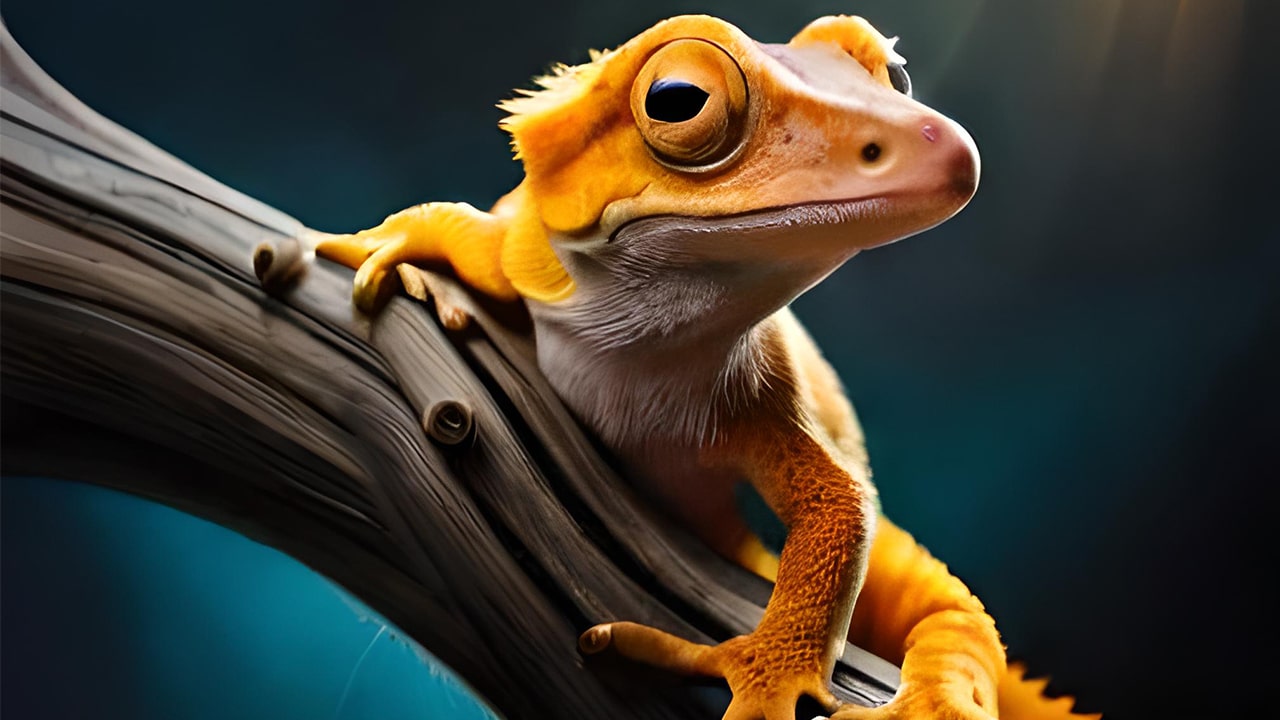Have you noticed that your crested gecko is not as active during the night as you would expect? If you’re a proud owner of a crested gecko, you might have observed this behavior and wondered why it happens. In this article, we will explore the reasons behind a crested gecko’s nocturnal inactivity and provide insights into its natural behavior. Understanding these factors will help you ensure the well-being and happiness of your gecko.
Contents
What is a Crested Gecko?
Before delving into the topic, let’s briefly discuss what a crested gecko is. The crested gecko, scientifically known as Correlophus ciliatus, is a small to medium-sized lizard native to New Caledonia, a group of islands in the Pacific. They are arboreal creatures, meaning they spend most of their lives in trees.
Understanding Nocturnal Behavior
Crested geckos are primarily nocturnal, which means they are most active during the night. This behavior is a result of their natural adaptation to their environment. In the wild, they navigate the darkness to hunt for food, find mates, and avoid predators. It’s essential to understand this nocturnal nature to provide the best care for your pet gecko.
Factors Affecting Nocturnal Activity
Several factors can influence the activity level of crested geckos during the night. Let’s explore some of the key factors to consider:
1. Temperature
Crested geckos are ectothermic, meaning they rely on external heat sources to regulate their body temperature. If the enclosure’s temperature drops too low during the night, the gecko may become less active to conserve energy. Ensuring the temperature remains within the optimal range is crucial for their overall well-being.
2. Lighting
In the wild, crested geckos are accustomed to the natural light cycle. When kept as pets, artificial lighting can affect their behavior. Bright lights during the night can disrupt their natural rhythm, leading to decreased activity. Providing a dim, moon-like lighting in the enclosure can help mimic their natural environment and promote activity.
3. Stress and Anxiety
Crested geckos are sensitive creatures and can be easily stressed by changes in their environment. Factors like loud noises, excessive handling, or a crowded living space can cause stress and make them less active during the night. It’s important to create a calm and quiet environment to help them feel safe and comfortable.
4. Illness or Injury
If your crested gecko is not active at night, it could be a sign of an underlying health issue or injury. Geckos may become less active when they are unwell or in pain. It’s crucial to monitor their behavior closely and seek veterinary attention if you notice any other concerning symptoms.
5. Age and Seasonal Variations
The age and seasonal variations also play a role in the activity level of crested geckos. Juvenile geckos may be more active during the night compared to adults. Additionally, seasonal changes in daylight hours can affect their behavior. During the breeding season, geckos may exhibit increased nocturnal activity.
Encouraging Activity in Crested Geckos
If you want to encourage your crested gecko to be more active during the night, here are some tips to consider:
1. Providing a Suitable Habitat
Ensure your gecko’s enclosure is spacious and well-suited for climbing. Provide branches, plants, and hiding spots to mimic their natural habitat. A comfortable and enriched environment will encourage them to explore and be more active.
2. Temperature and Lighting Considerations
Maintain an appropriate temperature gradient in the enclosure, with a warmer basking area and cooler areas for thermoregulation. Use low-wattage bulbs or specialized reptile lighting to create a dim, moonlit atmosphere during the night.
3. Handling and Interaction
While crested geckos can tolerate handling, excessive handling can stress them out. Limit handling to short sessions and allow them to rest undisturbed during the night. Minimizing stress levels will contribute to their nocturnal activity.
4. Nutrition and Diet
A balanced and nutritious diet is vital for the overall health of your gecko. Provide a variety of live insects, such as crickets and roaches, as well as a well-formulated crested gecko diet. A healthy diet will ensure they have the energy to be active during the night.

Conclusion
Understanding the behavior of crested geckos is crucial for their well-being. While it is natural for them to be less active during the night, certain factors can further influence their behavior. By providing a suitable habitat, addressing temperature and lighting requirements, minimizing stress, and ensuring a nutritious diet, you can encourage your crested gecko to be more active during the night.
Why Does My Crested Gecko Run Away From Me?
FAQs
- Q: Are crested geckos strictly nocturnal? A: Yes, crested geckos are primarily nocturnal creatures.
- Q: Why is my crested gecko hiding during the day? A: Crested geckos are naturally inclined to hide during the day as part of their nocturnal behavior. It helps them feel secure and protected.
- Q: Can I use a regular light bulb in my gecko’s enclosure? A: It is recommended to use low-wattage bulbs or specialized reptile lighting to avoid disrupting their natural light cycle.
- Q: What should I do if my crested gecko is not eating? A: A decrease in appetite can indicate an underlying issue. Ensure the enclosure conditions are optimal and consult a veterinarian if the problem persists.
- Q: How often should I handle my crested gecko? A: Limit handling to short sessions a few times a week to avoid causing stress to your gecko.


